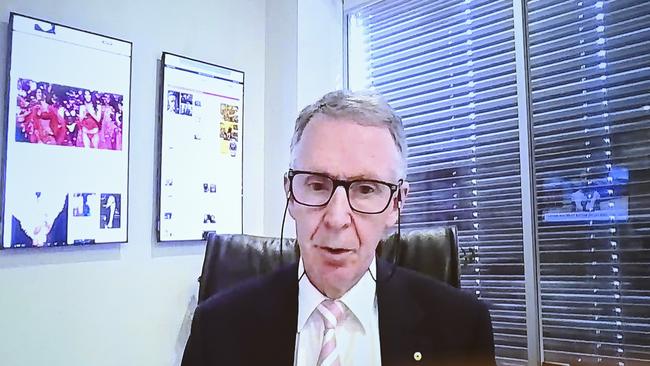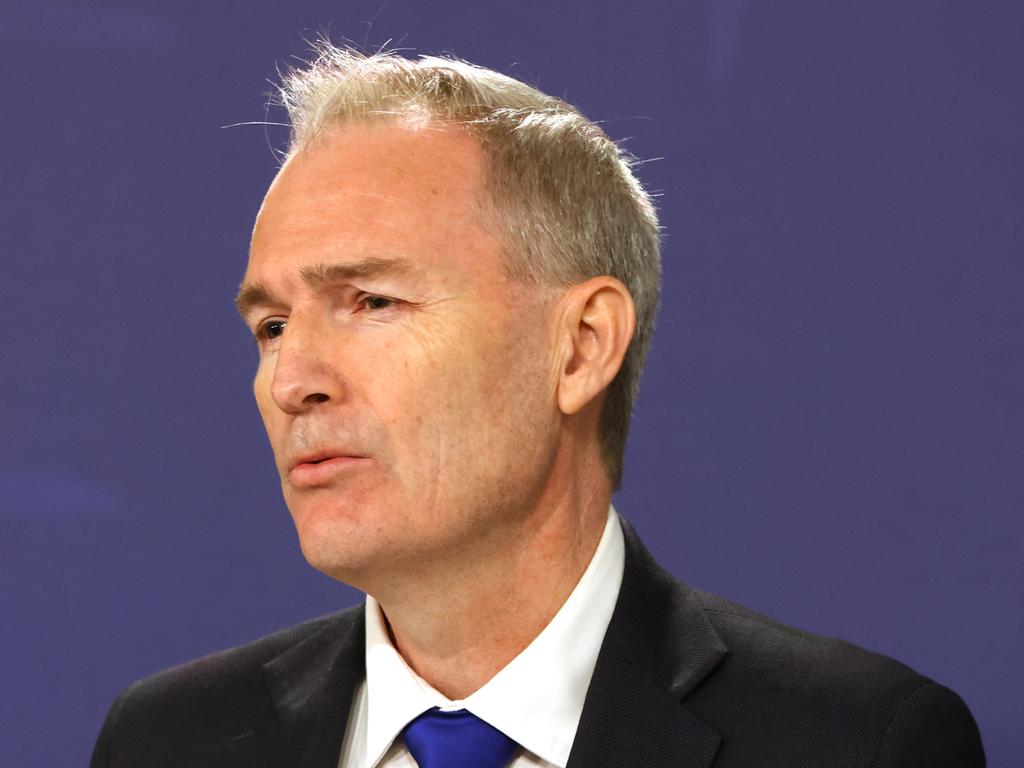Misinformation debate being ‘hijacked’ to target ‘disagreed with’ content: News executive
News Corp Australia’s Campbell Reid backs the ‘original and pure’ intention of Labor’s proposed misinformation laws but says without amendment, they could be used to stifle free speech.

News Corp Australia senior executive Campbell Reid says public debate about the threat of online misinformation has been “hijacked” by people seeking to label content they disagree with as false.
Addressing a Senate inquiry examining Labor’s proposed laws to combat misinformation and disinformation, Mr Reid said he supported the intention of the bill but preferred it not be passed into law without being “improved”.
Mr Reid said it was right that News Corp, the publisher of The Australian, and other professional news outlets be exempt from the legislation because they “take responsibility” for their content, while social media platforms did not.
He said the Communications Legislation Amendment (Combating Misinformation and Disinformation) Bill in its current form would impact on free speech.
“We support the original and pure intention of what the bill is trying to achieve,” he said. “But we, like others, are concerned that in its attempt to regulate the unregulated, it once again falls into the trap of imposing more regulation on the already regulated.
“I personally share some of the fears that it puts … constraint on acceptable free speech.”
Mr Reid said the bill’s purpose should be to address “dangerous information” that “incites terrible behaviour”, cautioning that the labels misinformation and disinformation had become “catch-all phrases” for disagreeable content, as the debate become “contaminated by sloganeering”.
“The tragedy of this is that misinformation and disinformation has become a one-word slogan that, frankly, has been hijacked by many people in politics to throw around when they’ve read something that they disagree with,” he said.
“And I, personally, think we should start again and look at some of the evidence that you’ve heard today about the actual harmful content that is being published and disseminated with the deliberate intention of causing harm to society.
“Not just what you might disagree with, or more a mistake that a journalist might make in covering a story.”
ABC senior strategist David Sutton agreed that professional news organisations should be exempt from the bill’s scope, arguing that outlets were already subject to “substantial regulation”.
“We also have very, very well-developed codes and standards that mean, in effect, the material that we are providing is a very, very high standard and is editorially robust,” he said.
“Which, as I understand it, the bill is effectively seeking to deal with the possibility of information that doesn’t have those characteristics.”
During a marathon day of hearings, Human Rights Commissioner Lorraine Finlay acknowledged that there was a need to address false information that caused “serious harm” but she said the bill did not strike the right balance in protecting free expression in its current form.
Ms Finlay criticised the legislation for its broad definitions of key terms, including “reasonable”, “intending” and “harm”, warning they could lead to over-censorship.
“The reason this is so critical in relation to freedom of speech is because when there is that uncertainty, when there is that vagueness, the risk is that people wanting to stay on the right side of the law will censor themselves,” Ms Finlay said.
“And we simply do not know the impact of that, in terms of how much that is occurring already.”
The Catholic Archbishop of Melbourne, Peter Comensoli, raised concerns that the bill’s exemptions for religious speech might only excuse faith leaders and not ordinary Australians.
“Is it just, for instance, matters that might be said by say, me, who has an official role in the religious context, or is it for anyone who wants to make some comment on euthanasia on their social feed, being concerned about that,” Archbishop Comensoli said.






To join the conversation, please log in. Don't have an account? Register
Join the conversation, you are commenting as Logout